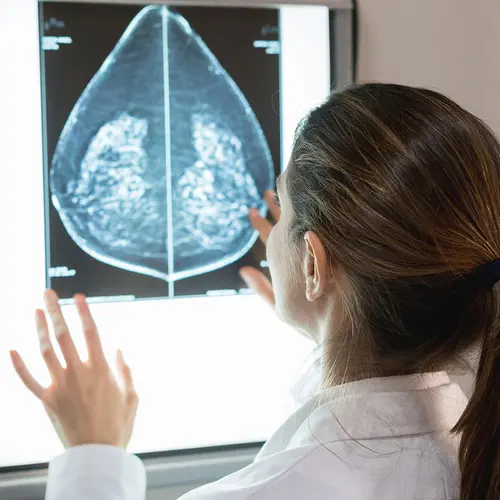Oct. 14, 2024 – A new breast cancer drug has received quick federal approval after a clinical trial showed it could more than double the time before a common type of breast cancer recurrence worsens.
The FDA approved Itovebi for people with hormone-sensitive breast cancer that returned while or after taking endocrine therapy, such as the medicine tamoxifen. Itovebi is only approved for people who have a genetic mutation called PIK3CA and whose cancer type is HER2-negative. (HER2 refers to a protein that can affect cancer growth.)
Along with its approval of the new drug, the FDA approved a genetic test called FoundationOne Liquid CDx as an option to identify people with the PIK3CA mutation. The mutation occurs in 40% of breast cancers that are hormone-sensitive and HER2-negative.
One of the researchers from the clinical trial for Itovebi called the drug “a new standard in how PIK3CA-mutated breast cancers are treated.”
“The PI3K pathway plays a pivotal role in disease progression and has been challenging to target,” Komal Jhaveri, MD, a breast oncologist and clinical director for drug development at Memorial Sloan Kettering Cancer Center, said in a news release from drugmaker Genentech.
Itovebi’s generic name is inavolisib, and it is approved to be taken along with already approved treatments for this type of breast cancer recurrence, which are the drugs Ibrance and Faslodex. Their generic names are palbociclib and fulvestrant, respectively.
In the clinical trial of 325 people, those who took the three drugs averaged 15 months before their cancer spread or they died of the disease (a measure known as progression-free survival). People in the study who took only Ibrance and Faslodex averaged just over 7 months of progression-free survival, the FDA reported in its approval. The agency noted that full data is not yet available, but early numbers suggest the addition of Itovebi may help people ultimately live longer.
Itovebi is taken as a daily tablet. The FDA approval detailed that the most common adverse reactions affected 20% or fewer people in the study and included laboratory test abnormalities, inflammation of the mouth or lips, diarrhea, fatigue, nausea, rash, decreased appetite, COVID-19 infection, and headache. The drug’s label also includes a warning about a risk of hyperglycemia, or high blood sugar.
